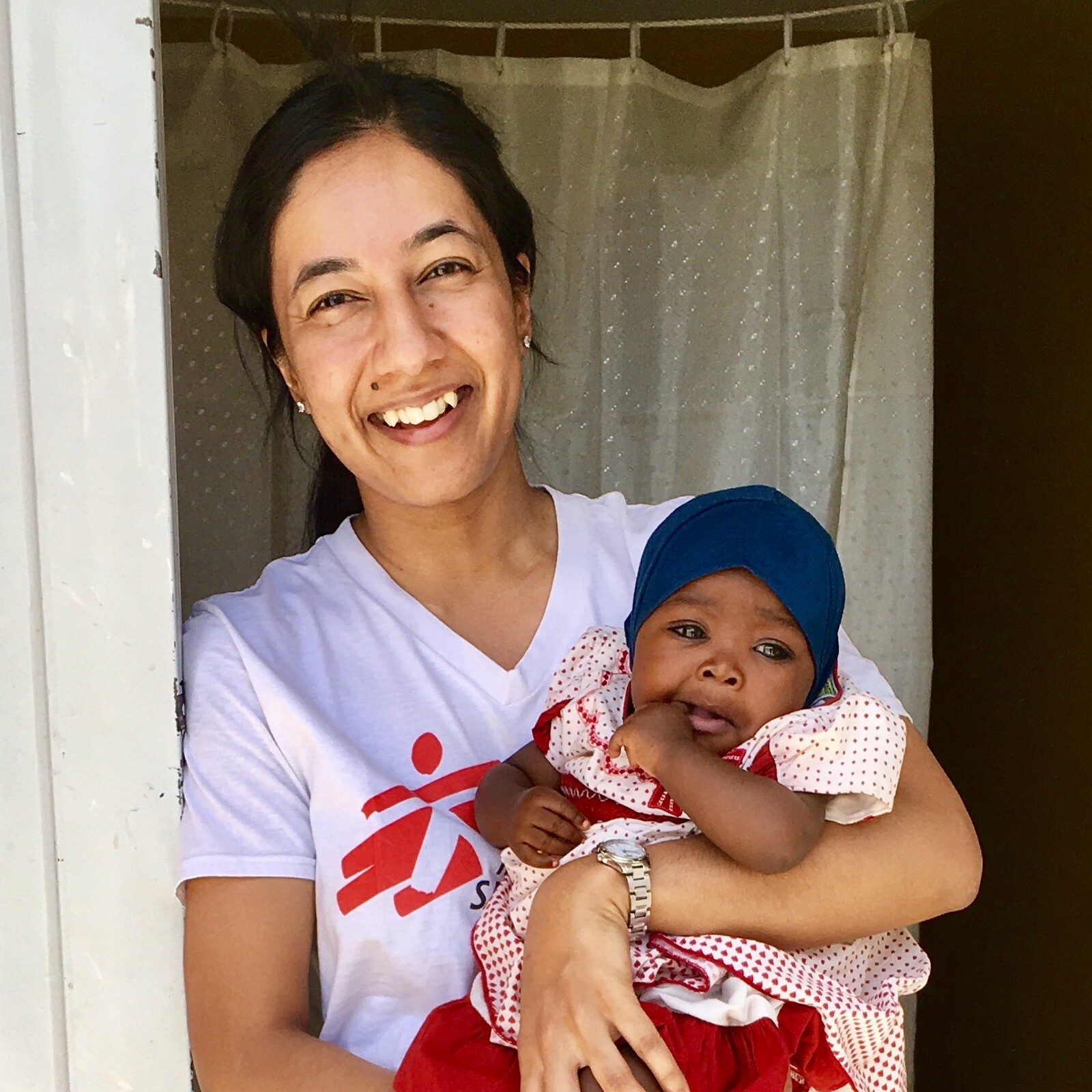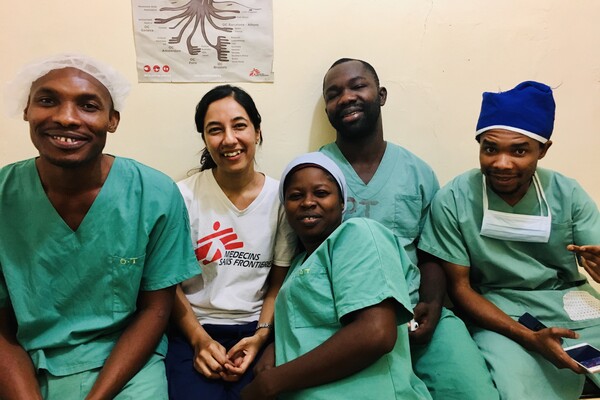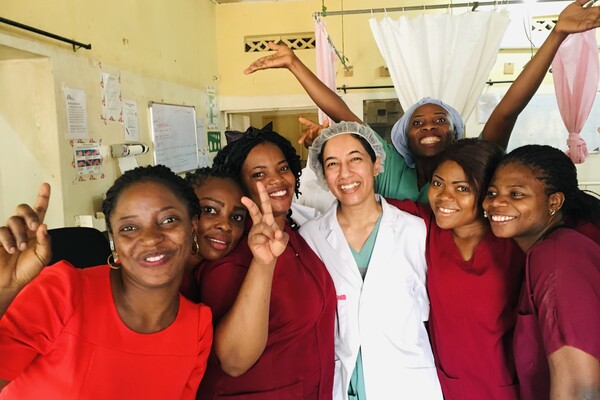Mobile Menu
- Education
- Faculty
- Research
- News & Events
- Divisions
- Equity, Diversity & Inclusion
- About Us


Dr. Karthika Devarajan was relatively early in her training when she attended a talk about the work that Doctors Without Borders/ Médecins Sans Frontières was doing abroad and the growing need for female obstetricians to assist in the humanitarian organization’s work.
Dr. Devarajan was inspired then to get involved — and years later, that inspiration has never wavered.
A lecturer in our Department, Dr. Devarajan recently returned from working in Chad, her seventh assignment with MSF. In previous trips, she has been dispatched to Pakistan, Nigeria, Afghanistan, South Sudan, and Yemen twice.
In fact, Dr. Devarajan devotes two months out of every year to travel the world working for MSF in countries where there is an urgent need for obstetricians and healthcare in general.
We caught up with Dr. Devarajan to discuss what drew her to this type of work, her experiences abroad, and how physicians and trainees can practice global health from home.
Before we talk about your work with MSF, I’m curious how you found your way to obstetrics and gynaecology as a specialty?
I was going to be a psychiatrist originally. That’s what I thought I wanted to do, because I did my undergrad in neuroscience, so I thought I wanted to do something with the brain. OB was one of my last rotations and because I wasn’t interested in OB, I chose an off-site rotation in Prince Edward Island. It was in the summertime and I just had the best time. At first, I thought it wasn’t a good idea because of the lifestyle and long hours — but then I delivered my first baby, and that was it.

When did you become interested in global health?
When I was in medical school I did an elective in India in obstetrics. I was a fourth-year medical student. I think that was the first time I saw that OB can be a really life-saving specialty. You don’t think of that here because people don’t usually die having a baby here, but it’s very common in other parts of the world.
As an obstetrician, you can do a lot of work very quickly. I always think if I’d been born to a different family, that could have been me — I could have been an uneducated girl in the village having seven or eight babies myself. It’s really just who I was born to that I got to have this life. So I think there’s some moral obligation to give back.
Looking back, what are some of the memories of your assignments with MSF that have stayed with you?
I think one of the things that amazes me all the time is how people recover from things. I remember I was in South Sudan once and this woman came in on a motorcycle with her husband. She was pregnant with her eighth baby, and she could feel that something was wrong but she didn’t know what. She collapsed right in front of us in the hallway of the hospital. She had a uterine rupture. We picked her up, took her to the OR, and we did a hysterectomy. Her baby was dead, but she recovered, got better, and went home a couple of days later.
That kind of stuff is really powerful and rewarding. Although she lost her baby, the remaining children still get to have their mom. Those children will do better because their mother survived.
We’re usually working in places where patients have no other options. We don’t have ICUs or fancy equipment. There are no other hospitals, no other surgeons, so we are the only option.
Can it also be quite difficult to work in an environment like that?
Yeah, there are a lot of very difficult things. Most of the places I work, the women have no autonomy. There’s a lot of sexual violence against women, against little girls. You see a lot of death. In Yemen, where I went twice, there is a massive famine that no one really talks about here. So you really see how unequal things are in the world, and that can be really frustrating.
It can get really overwhelming. But we try to focus on the good things we’re doing. In Yemen, we trained some of the local doctors how to do C sections, vacuums, and ultrasounds, so when I leave they can keep those skills and train other people and become self-sufficient.
There’s a lot of bad stuff, but there’s a lot of good stuff too to balance things out.
How did you decide to take two months each year to pursue this work?
I always thought it was something I’d like to do. I think it brings a lot of balance. I’m not one of the people who work for MSF for years at a time — I have this nice life in Toronto and then I also get to do some of this interesting work in these other countries. I never intended to do it for so long but now it’s become part of my routine. I’ve learned a lot, you meet a lot of really interesting people, and it gives you a different perspective on your life here.
I think it’s important, rewarding work. I have a great group I work with at North York General who are so supportive. I get a locum who covers my practice when I’m gone, so when I come back, it’s not overwhelming.
But one thing I like to point out to colleagues and residents is that you don’t have to go abroad to practice global health. North York is a very busy unit with lots of deliveries. We have a lot of immigrant patients, and you still get the chance to provide good care to people who are new to this country throughout the year.
If you’re passionate about global health, you can help those newcomers here navigate the healthcare system as well. That is also global health, but I think sometimes we lose sight of that fact. So I like to think that the other 10 months I’m in Toronto, I’m still practicing a bit of global health.
